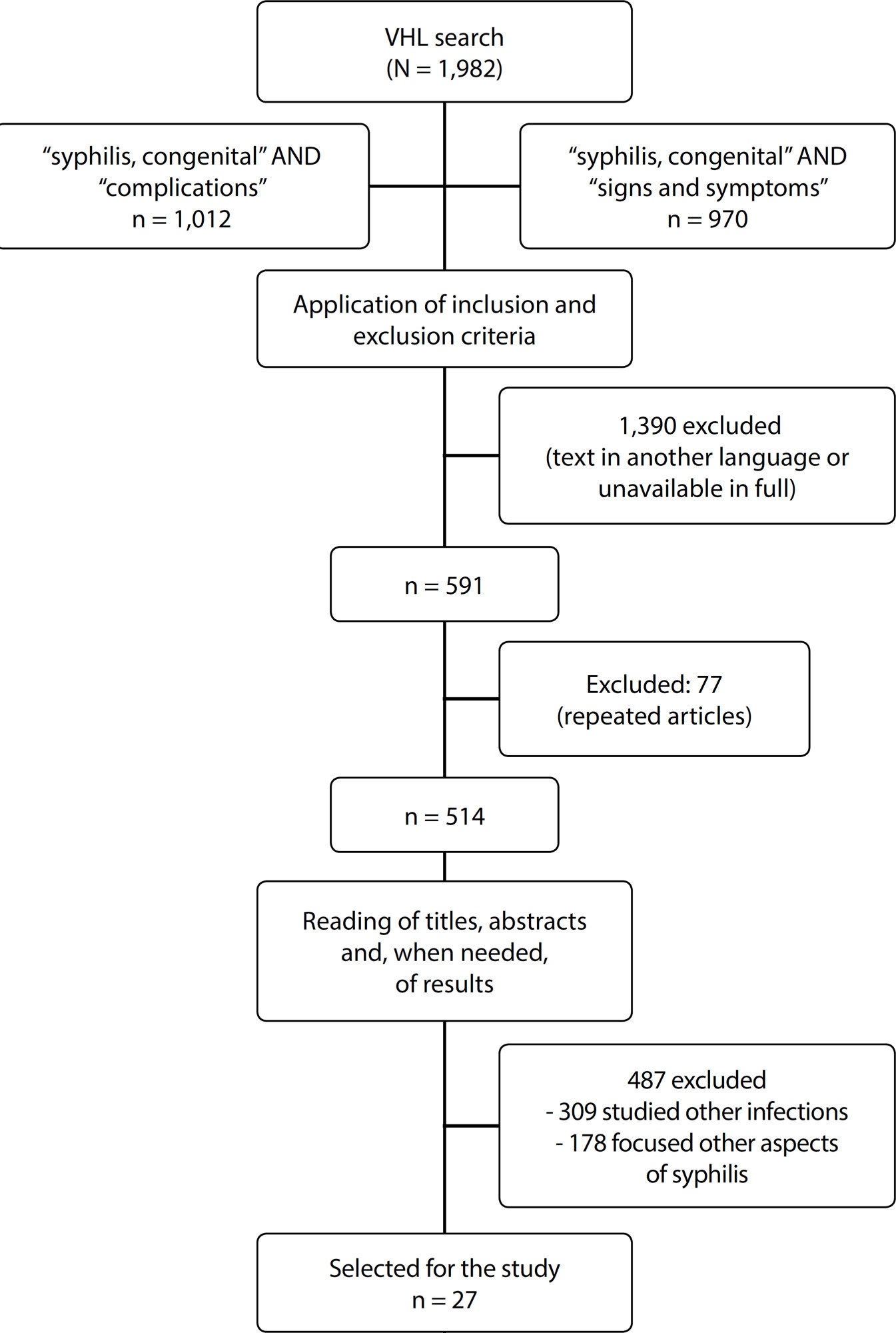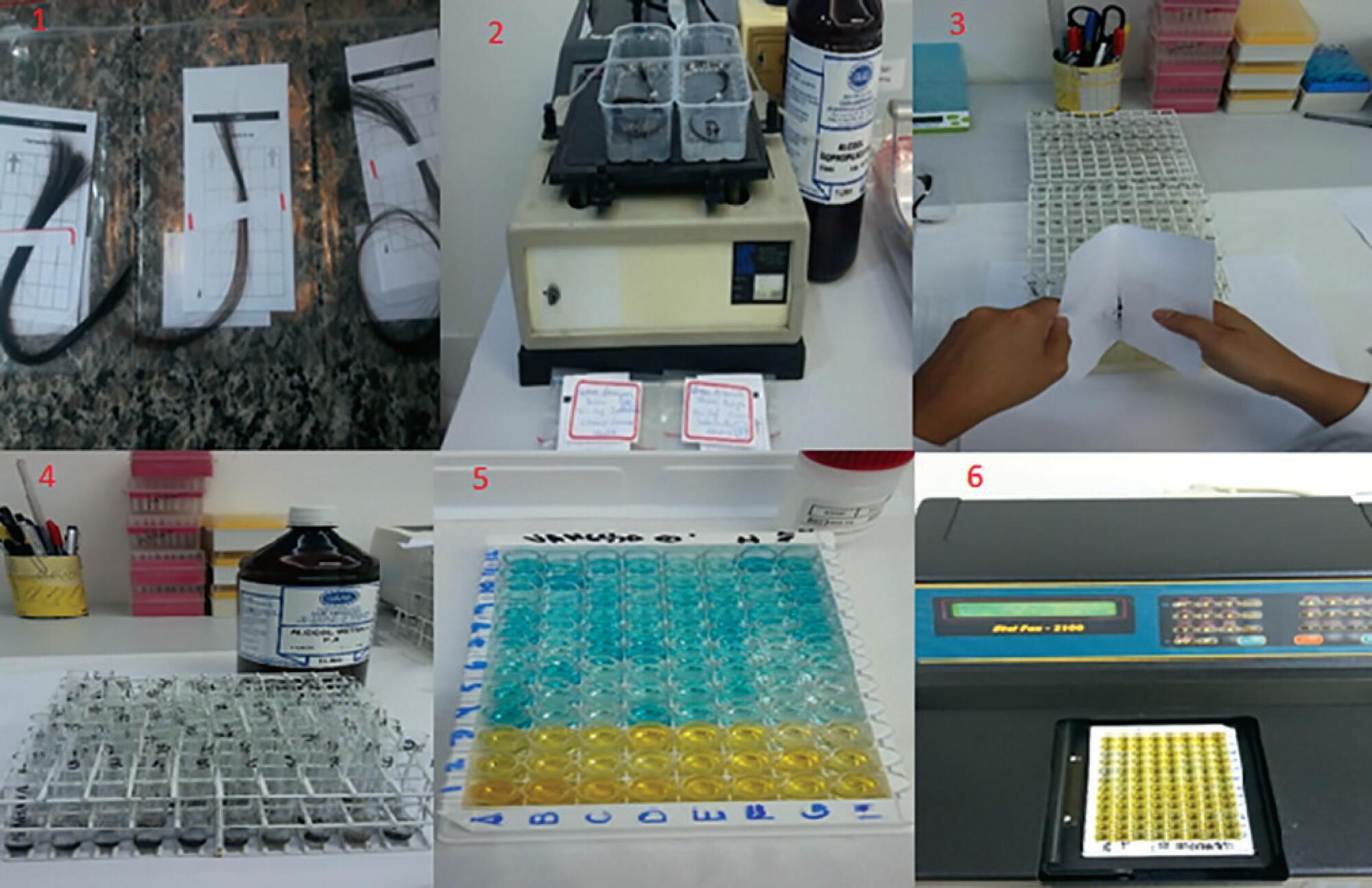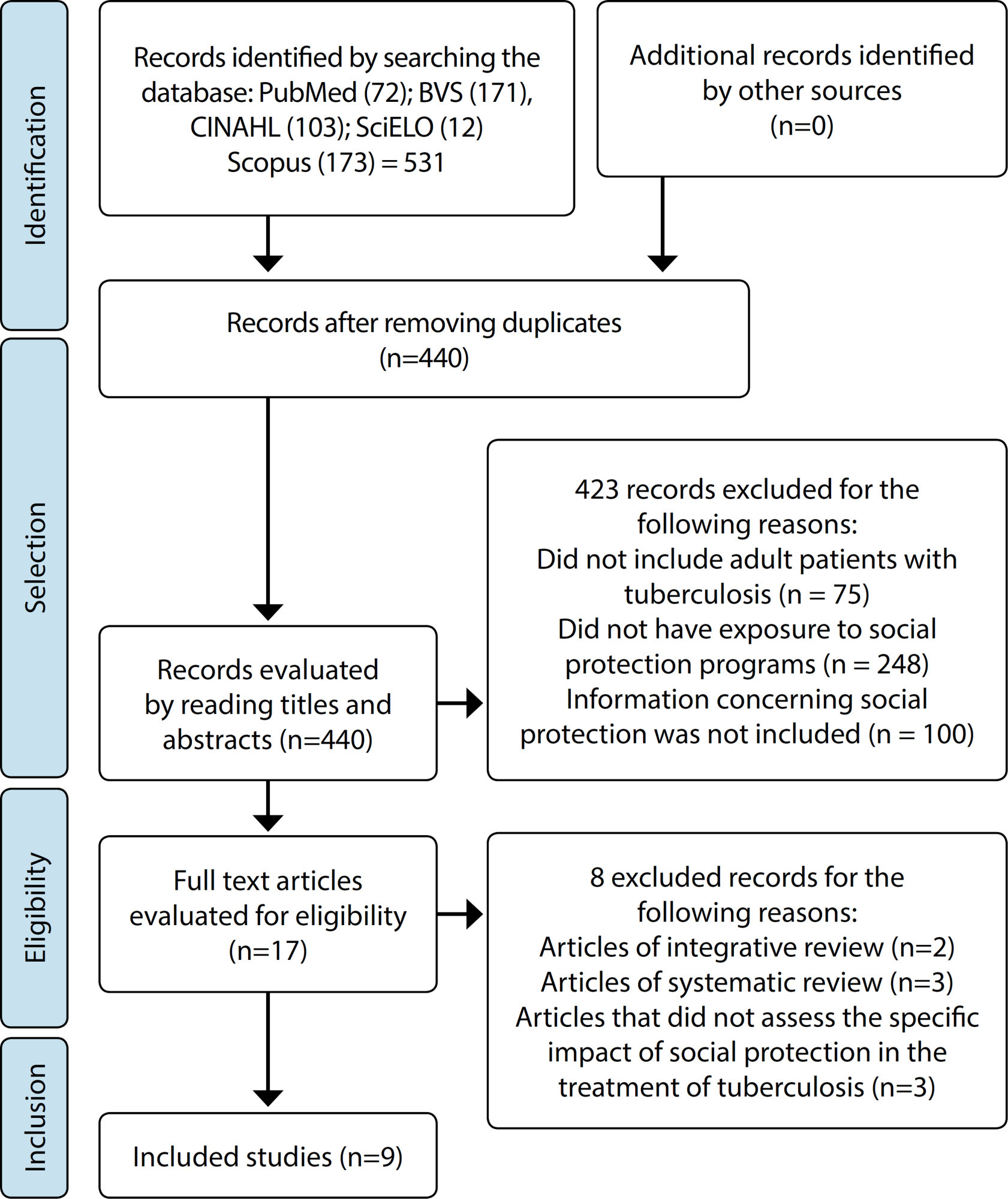-
RESEARCH
Learning Incubator: an instrument to foster entrepreneurship in Nursing
Revista Brasileira de Enfermagem. 2015;68(6):1103-1108
01-01-2015
Abstract
RESEARCHLearning Incubator: an instrument to foster entrepreneurship in Nursing
Revista Brasileira de Enfermagem. 2015;68(6):1103-1108
01-01-2015DOI 10.1590/0034-7167.2015680615i
Views0See moreABSTRACT
Objective:
this study aimed to know the contributions of the Learning Incubator to the process of lifelong education in health.
Method:
this is a qualitative field research whose data was collected from August to December 2014 by the focus group technique. The research had 34 employees of a Teaching Hospital in the central region of the state of Rio Grande do Sul that participated previously in the incubation process.
Results:
from the data encoded by content analysis, three themes were selected: Learning Incubator – welcoming and integrating space; An instigating instrument that enhances possibilities; Continuous and lifelong education strategy.
Conclusion:
the Learning Incubator is an important instrument to foster entrepreneurship in nursing and other health areas due to its capacity of rethinking mechanized practices, to the possibility of instigating new ways of being and acting, and to the ability of creating and developing new ideas based on individual and institutional needs.
-
RESEARCH
Non-pharmacological strategies to decrease anxiety in cardiac catheterization: integrative review
Revista Brasileira de Enfermagem. 2015;68(6):1093-1102
01-01-2015
Abstract
RESEARCHNon-pharmacological strategies to decrease anxiety in cardiac catheterization: integrative review
Revista Brasileira de Enfermagem. 2015;68(6):1093-1102
01-01-2015DOI 10.1590/0034-7167.2015680614i
Views0See moreABSTRACT
Objective:
to identify and review the literature on non-pharmacological strategies used for reducing anxiety in patients receiving cardiac catheterization.
Method:
this study was an integrative literature review. The research was conducted using the databases LILACS, SciELO, Medline (through BVS and PubMed) and Scopus. Studies were analyzed according to their objective, method, instruments used for evaluating patients’ anxiety, and the results obtained.
Results:
the most used strategy for reducing anxiety in patients receiving cardiac catheterization was music therapy. However, no study identifying the most appropriate time for this intervention (before, during and/or after the procedure) was found. Other strategies identified in this review were educational videos, massage, and palm therapy.
Conclusion:
the results found suggest that anxiety can be reduced using non-pharmacological strategies.

-
RESEARCH
Estratégias não farmacológicas para diminuição da ansiedade no cateterismo cardíaco: revisão integrativa
Revista Brasileira de Enfermagem. 2015;68(6):1093-1102
01-01-2015
Abstract
RESEARCHEstratégias não farmacológicas para diminuição da ansiedade no cateterismo cardíaco: revisão integrativa
Revista Brasileira de Enfermagem. 2015;68(6):1093-1102
01-01-2015DOI 10.1590/0034-7167.2015680614i
Views0See moreRESUMEN
Objetivo:
identificar y revisar los estudios de literatura que abordan las estrategias no farmacológicas utilizadas para reducir la ansiedad en los pacientes que reciben un cateterismo cardíaco.
Método:
revisión integradora. La investigación se llevó a cabo utilizando las bases de datos LILACS, SciELO, Medline (BVS y PubMed) y Scopus. Los estudios se analizaron de acuerdo con sus objetivos, la metodo, los instrumentos utilizados para la evaluación de la ansiedad de los pacientes, y los resultados obtenidos.
Resultados:
la estrategia dirigida más para reducir la ansiedad en los pacientes que recibieron cateterización cardíaca fue la musicoterapia. No se encontró estudio, sin embargo, identificando el momento más adecuado para esta intervención (antes, durante y / o después de este procedimiento). Otras estrategias identificados en esta revisión eran videos educativos, masajes y terapia de palma.
Conclusión:
los resultados sugieren que la ansiedad se puede reducir el uso de estrategias no farmacológicas.
-
RESEARCH
Convergence, divergence and diagnostic accuracy in the light of two nursing terminologies
Revista Brasileira de Enfermagem. 2015;68(6):1086-1092
01-01-2015
Abstract
RESEARCHConvergence, divergence and diagnostic accuracy in the light of two nursing terminologies
Revista Brasileira de Enfermagem. 2015;68(6):1086-1092
01-01-2015DOI 10.1590/0034-7167.2015680613i
Views0See moreABSTRACT
Objective:
compare divergences and convergences between the nursing diagnoses established for a case study, in the light of two nursing terminologies.
Method:
a descriptive research was undertaken. The participants were 24 nurses from public teaching hospitals (N=12) and hospital care institutions (N=12) in the Northeast of Brazil.
Results:
in group A (6 faculty members and 6 clinical professionals), 51 diagnoses were established according to NANDA-I: 54.9% of high accuracy, 23.5% zero, 15.7% low and 5.9% moderate accuracy. In group B (6 faculty members and 6 clinical professionals), 43 declarations were established using the ICNP®: 44.2% of zero accuracy, 39.5% high, 16.3% low. Four out of fi ve diagnostic titles of high accuracy in group A and the seven titles in group B converged; divergences were attributed to the number of combinations among the focus, judgment and location axes of the ICNP®.
Conclusion:
a range of titles was observed with different diagnostic inferences and low diagnostic accuracy in both groups.
-
RESEARCH
Speeches of managers about the policy of the directly observed treatment for tuberculosis
Revista Brasileira de Enfermagem. 2015;68(6):1069-1077
01-01-2015
Abstract
RESEARCHSpeeches of managers about the policy of the directly observed treatment for tuberculosis
Revista Brasileira de Enfermagem. 2015;68(6):1069-1077
01-01-2015DOI 10.1590/0034-7167.2015680611i
Views0See moreABSTRACT
Objective:
to analyze the managers’ speeches about the policy transfer of the directly observed treatment (DOT) for tuberculosis control in the city of João Pessoa, Paraíba, Brazil.
Method:
this is a qualitative study developed in May and June, 2013 through semi-directed interviews with twenty health professionals in five health districts in João Pessoa/PB. The empirical material produced was analyzed according to the theoretical-analytical basis of the French Discourse Analysis by Pêcheux.
Results:
the study demonstrated weaknesses in the conduction and organization of actions in relation to the DOT. It revealed that the lack of knowledge of the managers about this policy has direct implications to the care of tuberculosis patients.
Conclusion:
the management should trace strategic plans to rethink the care practices and thus, reorganize the entire care network to users in order to effectively contribute to user adherence in the fight against tuberculosis.
-
RESEARCH
Women’s temporality after cardiac surgery: contributions to nursing care
Revista Brasileira de Enfermagem. 2015;68(6):1056-1062
01-01-2015
Abstract
RESEARCHWomen’s temporality after cardiac surgery: contributions to nursing care
Revista Brasileira de Enfermagem. 2015;68(6):1056-1062
01-01-2015DOI 10.1590/0034-7167.2015680609i
Views0See moreABSTRACT
Objective:
to unveil women’s existential movement after cardiac surgery.
Method:
qualitative phenomenological study. The research setting was a hospital in Minas Gerais, in which ten women were interviewed between December 2011 and January 2012.
Results:
after hospital discharge, the women experienced physical, social and emotional impairments, and expressed the desire to go back to the time before their diagnosis, because they felt as though they still had heart disease. This vague and average understanding led to three units of meaning that, from a Heideggerian hermeneutic point of view, revealed the phenomenon of cardiac surgery as a present circumstance that limited the participants’ daily lives.
Conclusion:
nurses supporting women patients after cardiac surgery should promote health considering existential facets that are expressed during care. The bases for comprehensive care are revealed in singular and whole meetings of subjectivity.
-
REVIEW
Complications, clinical manifestations of congenital syphilis, and aspects related to its prevention: an integrative review
Revista Brasileira de Enfermagem. 2021;74(4):e20190318
07-14-2021
Abstract
REVIEWComplications, clinical manifestations of congenital syphilis, and aspects related to its prevention: an integrative review
Revista Brasileira de Enfermagem. 2021;74(4):e20190318
07-14-2021DOI 10.1590/0034-7167-2019-0318
Views0See moreABSTRACT
Objectives:
to identify the scientific evidence about the clinical complications and manifestations of congenital syphilis and aspects related to its prevention.
Methods:
integrative review after a search in the databases LILACS and MEDLINE, carried out in March 2018, using the descriptors “syphilis, congenital”, “complications”, and “signs and symptoms”, leading to the selection of 27 researches.
Results:
the publications found were published from 1966 to 2017, and most of them were from Latin America and Africa. Negative outcomes, laboratory changes, and the clinical manifestations in congenital syphilis, whether early or delayed, were, respectively: low weight at birth, anemia, hepatosplenomegaly, and dental alterations. The lack of treatment of the pregnant women in the prenatal was the most common occasion in which the opportunity to prevent the complications of congenital syphilis was lost.
Conclusions:
the scientific evidences analyzed showed serious complications of congenital syphilis that could be avoided if early opportunities of diagnosing and treating the pregnant women are not lost during the prenatal.

-
ORIGINAL ARTICLE
Cultural adaptation of Infant Feeding Intentions Scale (IFI) for pregnant women in Brazil
Revista Brasileira de Enfermagem. 2020;73:e20190103
07-15-2020
Abstract
ORIGINAL ARTICLECultural adaptation of Infant Feeding Intentions Scale (IFI) for pregnant women in Brazil
Revista Brasileira de Enfermagem. 2020;73:e20190103
07-15-2020DOI 10.1590/0034-7167-2019-0103
Views0See moreABSTRACT
Objectives:
to translate and culturally adapt the Infant Feeding Intentions Scale for pregnant women in Brazil.
Methods:
methodological study that included stages of translation, synthesis, face and content validation, back translation and semantic assessment. In the face and content and semantic validation stages, we used the Content Validity Index for individual items and for the overall scale for clarity and representativeness.
Results:
nine (100.0%) experts participated in face and content validation, and the average index obtained was 85.0% for representativeness. In the semantic assessment, performed with 31 (100.0%) pregnant women, the tool was considered clear, obtaining an average index of 91.0%.
Conclusions:
the Brazilian version of the scale was considered representative and clear. After assessing psychometric properties, the scale is expected to be valid and reliable to assess maternal intention to breastfeed exclusively until the infant’s six months of life in different Brazilian settings.
-
ORIGINAL ARTICLE
Development, validation and application of clinical simulation scenarios for assessment of stomatherapy specialists
Revista Brasileira de Enfermagem. 2021;74(1):e20200360
03-24-2021
Abstract
ORIGINAL ARTICLEDevelopment, validation and application of clinical simulation scenarios for assessment of stomatherapy specialists
Revista Brasileira de Enfermagem. 2021;74(1):e20200360
03-24-2021DOI 10.1590/0034-7167-2020-0360
Views0ABSTRACT
Objectives:
to build and validate three clinical simulation scenarios and report the application with candidates for the specialist’s degree in stomatherapy.
Methods:
methodological study, building three scenarios and evaluation checklists; content validation with judges, using content validity index and Modified Kappa Coefficient; pre-test and application.
Results:
scenarios built based on nursing care for: 1. insufficiency and venous ulcer; 2. demarcation of intestinal stomia; and 3. Clean intermittent catheterization. In the content validation of the 24 items appreciated, 83%, 80%, and 92% were validated without change. In the pre-test, the objectives and checklists were adjusted. In the application, to standardize the evaluation, actors and evaluators were trained previously, and each candidate passed the three stations.
Conclusions:
scenarios built and with validated content, based on evidence and covering the three areas of stomatherapy. The pre-test allowed for adjustments in the scenarios, and the candidates achieved the expected objectives.
Keywords:Educational AssessmentNursing EducationPatient SimulationSimulation TrainingValidation StudiesSee more -
ORIGINAL ARTICLE
Management of home care by family caregivers to elderly after hospital discharge
Revista Brasileira de Enfermagem. 2020;73:e20200474
12-07-2020
Abstract
ORIGINAL ARTICLEManagement of home care by family caregivers to elderly after hospital discharge
Revista Brasileira de Enfermagem. 2020;73:e20200474
12-07-2020DOI 10.1590/0034-7167-2020-0474
Views0See moreABSTRACT
Objective:
To understand the management of home care by family caregivers of dependent elderly people after hospital discharge.
Methods:
Qualitative research guided by hermeneutics-dialectic, anchored in the theory of communicative action. Data collection took place using a semi-structured interview with 11 participants.
Results:
Two categories were constructed: Management of the many types of care by the caregiver and the relationship between family caregiver and health care network. Care and management actions carried out routinely cause major changes in the family caregiver’s life. He/she does not recognize planning, home care periodicity or support in required procedures.
Final Considerations:
The management of home care for dependent elderly people after hospital discharge is complex, involving physical and emotional overloads, as well as difficulties in getting support from health services. The planning shared between the health team and the family since the discharge is required, and the better visibility of the role of primary care when the patient is assisted by a home care service.
-
Sexuality is associated with the quality of life of the elderly!
Revista Brasileira de Enfermagem. 2021;74:e20201272
07-09-2021
Abstract
Sexuality is associated with the quality of life of the elderly!
Revista Brasileira de Enfermagem. 2021;74:e20201272
07-09-2021DOI 10.1590/0034-7167-2020-1272
Views0See moreABSTRACT
Objective:
to analyze the association between sexuality and quality of life of Brazilian elderly residents in the community.
Methods:
a cross-sectional study conducted with 477 Brazilian elderly. The data were collected between August and October 2020. We used the EVASI and WHOQOL-OLD (World Health Organization Quality of Life). Data analysis was performed with Mann-Whitney, Spearman and Kruskal-Wallis correlation tests, with Bonferroni post-hoc application when necessary, considering a 95% confidence interval.
Results:
there was a statistical association between all dimensions of sexuality and the general quality of life of the elderly (p<0.05).
Conclusion:
the stimulation of sexuality can be configured as an innovative and holistic strategy focused on the promotion of health and active aging, since this study found the association between sexuality and the general quality of life of elderly people.
-
ORIGINAL ARTICLE
Stress and cortisol levels among members of the nursing team
Revista Brasileira de Enfermagem. 2020;73:e20180953
06-01-2020
Abstract
ORIGINAL ARTICLEStress and cortisol levels among members of the nursing team
Revista Brasileira de Enfermagem. 2020;73:e20180953
06-01-2020DOI 10.1590/0034-7167-2018-0953
Views0See moreABSTRACT
Objective:
To analyze the characteristics of hospital nursing professionals with the presence of stress, and to associate this with capillary cortisol.
Method:
A cross-sectional, exploratory and correlational study, conducted in a hospital in São Paulo, Brazil. A total of 164 nursing professionals participated; the Perceived Stress Scale was administered, and hair samples were obtained for laboratory analysis. Data were entered into a Microsoft Excel spreadsheet (2010), and then into Microsoft Office and the R software, version 3.2.2.
Results:
High levels of capillary cortisol in 47% of participants suggest the presence of stress, but no statistical significance between cortisol and stress levels were found.
Conclusions:
Stress and capillary cortisol levels were indicative of stress among nursing professionals; however, no association between them was found, although the values found were above those recommended.

-
ORIGINAL ARTICLE
Functional health literacy in hypertensive elders at primary health care
Revista Brasileira de Enfermagem. 2019;72:266-273
12-05-2019
Abstract
ORIGINAL ARTICLEFunctional health literacy in hypertensive elders at primary health care
Revista Brasileira de Enfermagem. 2019;72:266-273
12-05-2019DOI 10.1590/0034-7167-2018-0897
Views0See moreABSTRACT
Objective:
to assess the relationship between inadequate functional health literacy and inadequate blood pressure control in older people with hypertension in Primary Health Care.
Method:
a cross-sectional study with sample calculated at 392. SAHLPA-18 tool was used for functional health literacy; blood pressure was measured; sociodemographic and clinical data were collected. Hierarchical logistic regression was used.
Results:
(high) inadequate blood pressure and (low) functional inadequate health literacy were present in 41.6% and 54.6% of the people, respectively. Factors associated with inadequate blood pressure were: inadequate functional health literacy, black-brown skin color, overweight-obesity, hypertension diagnosis time, non-adherence to exercise/diet, drug treatment. Schooling had no association with inadequate blood pressure
Conclusion:
hypertensive elderly people with inadequate health literacy were more likely to have inadequate blood pressure. Thus, health professionals need to value functional health literacy as a possible component to control blood pressure.
Search
Search in:
Nuvem de Tags
Aged (144) Atenção Primária à Saúde (239) COVID-19 (104) Cuidados de Enfermagem (269) Educação em Enfermagem (151) Educação em Saúde (139) Enfermagem (930) Estudos de Validação (131) Health Education (144) Idoso (208) Mental Health (149) Nursing (987) Nursing Care (306) Patient Safety (151) Primary Health Care (284) Qualidade de Vida (104) Quality of Life (106) Saúde Mental (145) Segurança do Paciente (150) Validation Studies (108)





